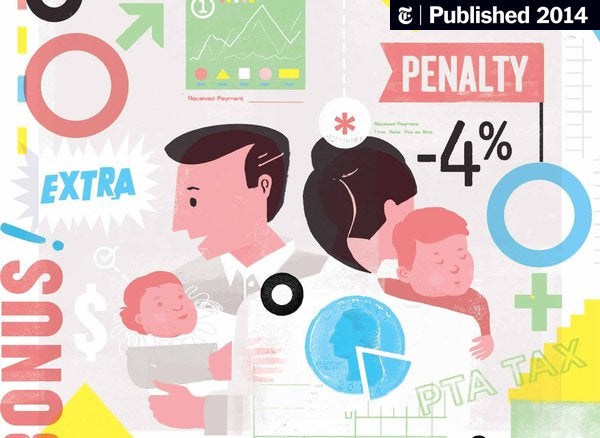- 214 Posts
- 251 Comments

 0·9 days ago
0·9 days agoStopping out seems to be an industry term that refers to sem-quitting school with an intent to return.

 0·10 days ago
0·10 days agoWhat does harassment mean in this context?

 0·11 days ago
0·11 days agoWhy tf would you associate with men who would punish you if you don’t “live up to a masculine ideal”?
It’s not like men are ever given an explicit choice. Very frequently this means older male relatives.

 0·11 days ago
0·11 days agoMy problem with this is these new qualities are just as likely to be used to build a toxic hierarchy. The problem seems to me to be not just the qualities themselves but the competitive nature that is more or less beaten into boys at a young age.

 0·11 days ago
0·11 days agoI think we’re splitting hairs here. They don’t want to because they feel like they can’t do so without repurcussions.

 0·11 days ago
0·11 days agoThis is absolutely true and I’m always surprised there isn’t more acknowledgement in progressive women’s circles. Simple polling shows that roughly a third of women hold all men to these standards but there are significantly more who exclusively apply it to potential partners (speaking from a very US-centric perspective).
The honest solution is that women who think this way are simply not good partners, and should be avoided to whatever degree is possible.

 0·11 days ago
0·11 days agoWell it’s entirely dependent on their social circle, right? They’re the ones who would or would not enforce these norms.

 0·13 days ago
0·13 days agoI think you’ve hit the nail on the head here.
Toxic man: oh guess I am just gunna keep doing what I am doing if you aren’t going to tell me what to do.
The reason this comes up is that masculinity is largely based around externally conferred social status. You have to constantly be doing something to maintain an image of masculinity. Often this means some sort of social or physical violence in the right time or place (beat up the mugger to defend your partner, call out your boss when you’re being treated unfairly, put rival men in their place). Just as frequently, however, it is the expectation of a certain amount of self sacrifice (paying for meals, military service). What they don’t understand is how anyone can expect them to maintain their social status when they are avoiding this role that they have been explicitly shown that there will be consequences if they fail to meet. The answer is simple: once you’re out of the masculinity rat race, you’re out. By refusing to take part in the hierarchy of dominance you will eventually be subject to a more general and, frankly, human set of standards.
The only problem is that all of these pressures are external in the first place and this whole dynamic creates strong social gender boundaries. It is very easy for a lot of men to look at their social circles and see exclusively people who punish them for a failure to live up to a masculine ideal.

 0·24 days ago
0·24 days agoHe looks so happy

 0·1 month ago
0·1 month agoPeople here are seriously not a fan of videos 🤷♀️ . Don’t take it personally it pretty much always goes like this.
As mod however I very much appreciate your posting.

 0·2 months ago
0·2 months agoMany people who have a problem with the name feminism are nonbinary people, who want equality but have been excluded from the movement by enbyphobic women, AKA TERFs.
I assert that the quantity of nbs who hold this opinion is so small as to be negligable and that ceding a major right wing talking point for gender equity for nbs (a group in which I, and the majority of my social circle are a part of) is mostly just ceding a right wing talking point.
Put another way, the idea that “feminism” is an insufficient term is tantamount to “all lives matter”.

 0·2 months ago
0·2 months agoWell this is a debate about prescriptivism vs descriptivism, right?
No I don’t think so.
You’re arguing we should stick to the “intended” meaning. But at what point does denying the evolution of language to become more transphobic deny the genuine harms suffered by trans people?
I’m arguing that your particular claimed usage of feminism as a transphobic term (that is, the general inclusion of NBs as a class for whom feminism benefits is tantamount to gendering them female) simply doesn’t hold up to scrutiny. This is distinct from the issue of women’s spaces explicitly including NBs feels like misgendering (which is valid).
The premise of this community is fundamentally dependent on the idea that being a beneficiary of feminism MUST be entirely seperate from being gendered female.

 0·2 months ago
0·2 months agoIt’s not that there must be a class that suffers, it’s that there is.

 0·2 months ago
0·2 months agoThrowing out feminism because it does not essentialise trans and NB rights feels like very poor praxis. From the perspective of one individual assessing the views of another, I don’t disagree with your metric, but I disagree with your application of the ideas to the broader movement. Particularly in so far as it grants to right wingers that feminism is a sexist term.

 0·2 months ago
0·2 months agoThe debate around terminology for spaces intended for women (and the tendency for folks to make nebulous assertions about the inclusion of NBs) seems to me to be an entirely separate issue.
Fundamentally, I see what you’re saying but I’d like to push back on the idea that the term “feminism” needs rethinking at this point in time.
I’d even go so far as to the parent comment where a rejection of the term feminism is tantamount to “all lives matter” is more correct than the idea that “feminism” is a poor term because it feels like misgendering. This is a space centered around the idea that feminism is good for men because feminism is not a term that should leave you feeling gendered in it’s primary usage.

 0·2 months ago
0·2 months agoYou’re being downvoted, but though most wouldn’t express it explicitly, men consistently demonstrate a very similar danger response to other men as women.

 0·2 months ago
0·2 months agoSwing and a miss, mate. Many people who have a problem with the name feminism are nonbinary people, who want equality but have been excluded from the movement by enbyphobic women, AKA TERFs.
I’m not sure the mere existence of TERFs has led to any significant movement to rename feminism among the NB community.

 0·2 months ago
0·2 months agoTerrorist attacks are not more likely to be committed by somebody you know intimately than anybody else.

 0·2 months ago
0·2 months agoI think these are some good points particularly as they reflect on the idea of ‘redefining’ Masculinity. While i would argue our current conception of Masculinity is much more deeply rooted (certainly much much older) than neoliberalism, Masculinity is similarly dependent on the idea of competition as the primary means of expression. This is went i believe it is somewhat missing the point to try to define a positive Masculinity. If you’ve got a group of people who’ve existed since birth in an intrinsically competitive environment, it is not enough to say the new ideal is not competitive. When the cultural notions of the group are already set in place, a supposedly less competitive ideal will result in almost no actual social change. Deconstructing the competitive instincts of Masculinity should be the primary project.

















In my memory people considered them meh at best but I had some fun. I remember the DS version in particular being pretty dope.